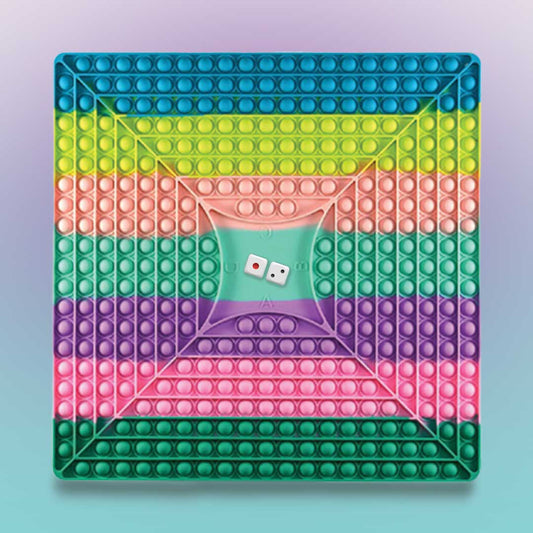Why Non-Toy Christmas Gifts for Kids Are a Game-Changer
The holiday season is a time of joy, family gatherings, and gift-giving. Traditionally, toys have been the go-to gifts for children, but a growing trend is shifting towards non-toy gifts. This shift is not just a fleeting trend but a significant change in how we perceive gift-giving for children. Non-toy Christmas gifts are becoming a game-changer for several reasons, including fostering creativity, reducing materialism, and promoting meaningful experiences. This report delves into why non-toy gifts are gaining popularity and how they can positively impact children and families.
The Problem with Too Many Toys
Overwhelming Clutter
One of the primary reasons parents are moving away from toy gifts is the overwhelming clutter that toys can create. Many parents have expressed frustration over the sheer volume of toys that accumulate over time. According to a report by Healthy Happy Impactful, parents often find piles of toys that are broken, lost, or rarely played with. This clutter not only takes up physical space but also creates a chaotic environment that can be stressful for both parents and children.
Short-Lived Excitement
Toys often provide short-lived excitement. Children may be thrilled when they first receive a new toy, but this excitement can quickly fade. A post on Your Modern Family highlights that toys are often played with only on the day they are received and then forgotten. This cycle of excitement and disinterest can lead to a constant demand for new toys, perpetuating a cycle of consumerism and materialism.
Benefits of Non-Toy Gifts
Fostering Creativity and Imagination
Non-toy gifts can significantly foster creativity and imagination in children. Items such as art supplies, musical instruments, and books encourage children to use their imagination and develop new skills. For instance, a report by The Pragmatic Parent suggests that gifts like paint sets and musical instruments can provide hours of creative fun and help children develop artistic and musical talents.
Promoting Meaningful Experiences
One of the most compelling reasons to opt for non-toy gifts is the promotion of meaningful experiences. Experiences such as family trips, tickets to events, or memberships to museums can create lasting memories. According to Self-Sufficient Kids, research shows that experiences bring people more happiness than possessions. These experiences can strengthen family bonds and provide educational opportunities that toys cannot offer.
Reducing Materialism
Non-toy gifts can help reduce the materialistic mindset that often accompanies the holiday season. By focusing on gifts that have lasting value and meaning, parents can teach their children to appreciate what they have and to value experiences over possessions. A post on Nourishing Joy emphasizes that spending time with children and creating memories is far more valuable than any material gift.
Types of Non-Toy Gifts
Educational Gifts
Educational gifts are a fantastic way to combine learning with fun. Items such as science kits, books, and educational subscription boxes can stimulate a child's curiosity and love for learning. According to What Mommy Does, educational gifts can be both practical and enjoyable, providing children with tools to explore new interests and develop new skills.
Experience-Based Gifts
Experience-based gifts can range from tickets to a local play or concert to a family vacation. These gifts provide opportunities for children to explore new environments and activities. A report by Already Tired Tomorrow suggests that experiences such as family trips or tickets to events can create lasting memories and provide educational benefits that toys cannot.
Practical Gifts
Practical gifts, such as clothing, bedding, or personalized items, can be both useful and appreciated. These gifts can meet a child's needs while also being special and thoughtful. For example, a personalized backpack or a new set of pajamas can be both practical and exciting for a child. According to Love Love Love Blog, practical gifts can be a great way to give something that will be used and appreciated.
Gifts that Promote Life Skills
Gifts that promote life skills can help children develop independence and responsibility. Items such as tool sets, gardening supplies, or cooking kits can teach children valuable skills that they can use throughout their lives. A post on The Pragmatic Parent highlights that gifts promoting life skills can help children learn to follow instructions, practice concentration, and gain a sense of accomplishment.
The Impact on Family Dynamics
Strengthening Family Bonds
Non-toy gifts can significantly strengthen family bonds by encouraging shared activities and experiences. Family trips, game nights, or cooking together can create opportunities for quality time and meaningful interactions. According to Your Modern Family, investing in memories rather than material possessions can lead to stronger family relationships and more meaningful holiday celebrations.
Teaching Values
By choosing non-toy gifts, parents can teach their children important values such as gratitude, generosity, and the importance of experiences over possessions. A report by Self-Sufficient Kids suggests that non-toy gifts can encourage children to focus on spending time with family, being generous to others, and inspiring creativity and exploration.
Reducing Stress
The holiday season can be stressful for parents, especially when it comes to managing the influx of new toys and the clutter they create. By opting for non-toy gifts, parents can reduce the stress associated with holiday shopping and toy management. A post on Healthy Happy Impactful highlights that non-toy gifts can help parents avoid the overwhelm of toy clutter and create a more peaceful and organized home environment.
Conclusion
Non-toy Christmas gifts are a game-changer for several reasons. They foster creativity and imagination, promote meaningful experiences, reduce materialism, and strengthen family bonds. By choosing non-toy gifts, parents can provide their children with lasting memories and valuable life skills while reducing the clutter and stress associated with traditional toy gifts. As the holiday season approaches, consider the benefits of non-toy gifts and how they can positively impact your family.





